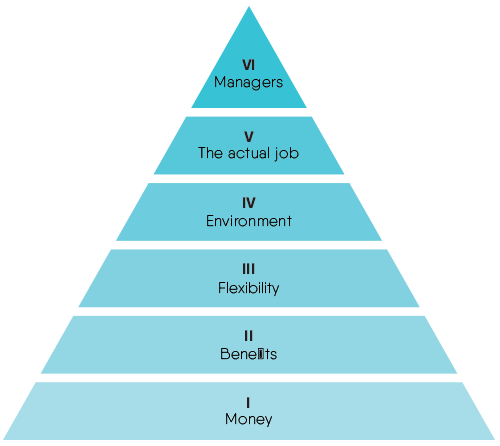So, I’m sharing a post I wrote over at EXJournal.org (EX = Employee Experience). It’s site started by some brilliant people from all over the world and they invited me to write to bring down the overall quality of the site! I wrote this post and immediately thought, “Hey, I just leveled-up from my normal poorly written stuff!”.
I thought this because it’s an idea I’m passionate about and truly believe. I think we get lied to a bunch by HR vendors who are just trying to sell their shit. We’ve been lied to for a long time on the concept – “People leave managers, not companies” – that’s actually not true…enjoy the post and check out the new EXJournal site!
“Employees don’t leave companies. Employees leave managers.”
How often have you heard this over the past decade? A hundred times? A thousand times?
We love saying this in the HR, management consulting, leadership training world. We use it for employee engagement and employee experience, to almost anything where we want to blame bad managers and take the focus off all the other crap we get wrong in our companies.
The fact is, the quote above is mostly bullshit.
Employees actually care about other things more
The truth is, employees actually leave organizations more often over money than anything else. We don’t want to believe it because that means as leaders we have to dig into our budgets, make less profit, and pay our employees true market value if we want them to stay.
Managers might be the issue if you’re getting everything else right. So, if you pay your employees at the market rate. Ifyou offer market-level benefits. If you give them a normal work environment, then yes, maybe employees don’t leave your company, they leave their managers.
But you forgot all that other stuff? Maybe the ‘real’ reason an employee left your company wasn’t the fact their manager wasn’t a rock star. Maybe it was the fact you paid them below market, gave them a crappy benefits package, and made them work in the basement?!
The dirty little truth about Employee Experience is that managers are just one component of the overall experience, and we give them way too much weight when looking at EX in totality. We do this because we feel we don’t have control over all of the other stuff, but it’s easy to push managers around and ‘train’ them up to be better than they actually are.
Rethinking Maslow for EX
There is a new Maslow‘s Hierarchy of Employee Needs when it comes to Employee Experience and it goes like this:
 Level I – Money – cash!
Level I – Money – cash!
Level II – Benefits – health, fringes, etc.
Level III – Flexibility of Schedule – work/life balance
Level IV – Work Environment – short commute, great design, supportive co-workers
Level V – The Actual Job/Position – am I doing something that utilizes my best skills?
Level VI – Your Manager – do I have a manager who supports my career & life goals?
We all immediately jump to Level VI when it comes to EX because that’s what we’ve been told is the real reason people leave organizations. Which actually might be the case if all of the other five levels above are being met. What I find is that rarely are the first five levels met, and then it becomes really easy to blame managers for why their people leave.
Managers aren’t the difference maker
When I take a look at organizations with super low turnover, what I find are that they do a great job at the first five levels, and they do what everyone else does at level six. The managers at low turnover organizations are virtually the same as all other organizations. There is no ‘real’ difference in skill sets and attitudes; those managers are just managing employees who are pretty satisfied because most of their basic needs are met pretty well.
I think the new quote should be this:
“Good employees leave companies that give them average pay, benefits, and work environment, that don’t utilize the employee’s skill set, and that make them work for a crappy boss.”
(Tim note – Why the #Drink? It’s a game that my fellow HR/TA speakers and I play. We hate when someone uses the Maslow pyramid in a slide, so we make fun of it by claiming every time a speaker mentions “Maslow” or shows the pyramid the entire audience should have to take a drink – like a drinking game for bad speakers! The more you know…)



